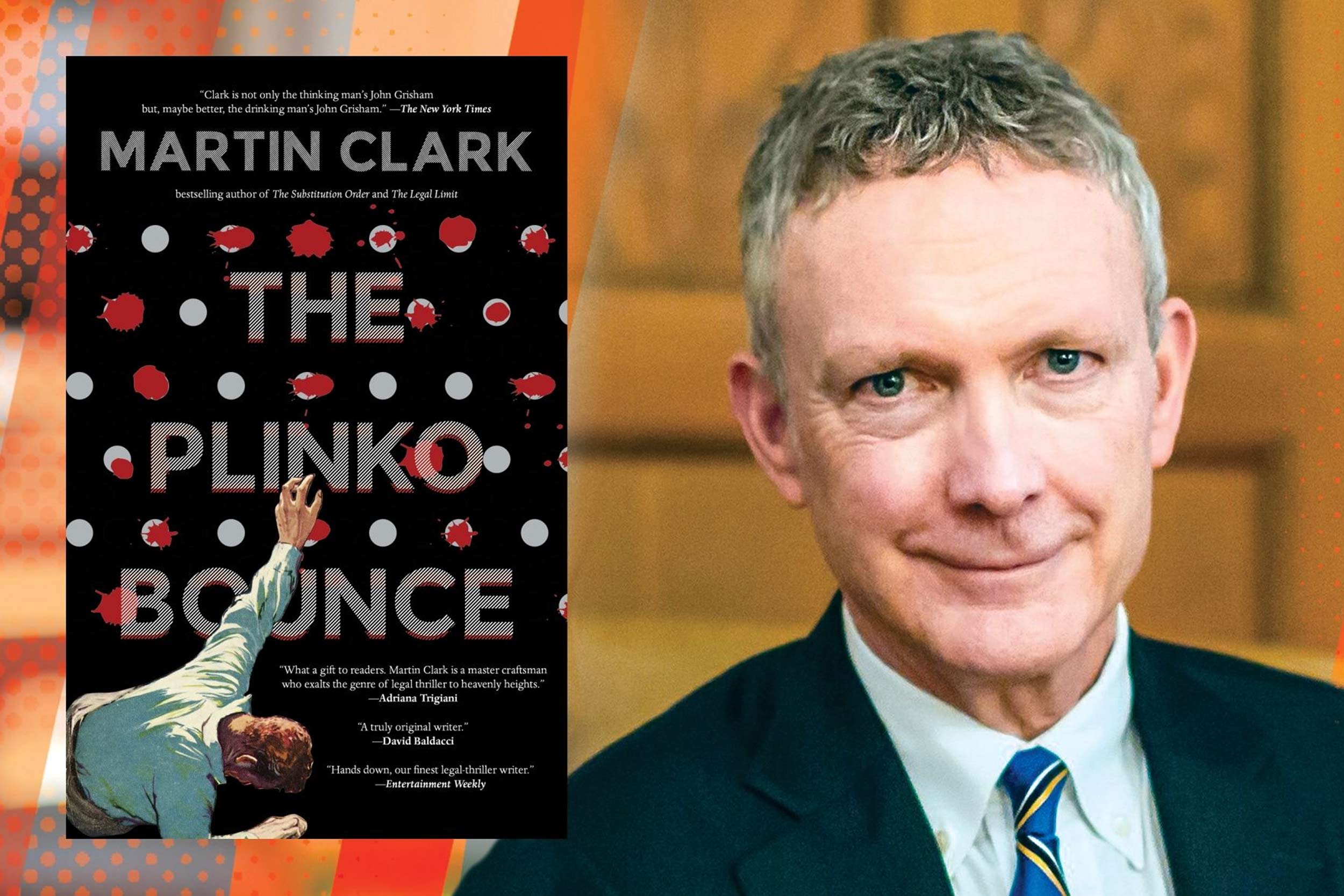At UVA, Clark’s constitutional law professor, A.E. Dick Howard, let him continue working on the manuscript for academic credit and gave him feedback. And a law school classmate helped him track down world-famous local novelist Rita Mae Brown in hopes that she might guide him through the process of landing a book deal.
After significant detective work, they located her farm in horse country and hatched a fully baked plan to stuff his half-baked manuscript and a bottle of liquor in her mailbox.
“We went to Barracks Road Shopping Center and bought ski masks, and we obscured the license plate on my pal’s Jeep because we were worried about mailbox tampering,” Clark recalled. “It’s a federal crime, you know? And we were worried the mailbox police would leap out from behind the hedgerow and slap us in irons.”
Brown was kind enough to read the manuscript and return it – postage paid – with a note about structure and a final comment: “As to mixing law and literature, it occurs to me you’ll either be a half-ass writer or a half-ass lawyer.”
Fortunately for Clark, he ended up doing neither halfway.
He focused primarily on his law practice until, at age 32, he was appointed to an open judgeship in the local juvenile and domestic relations court. Three years later, he was promoted to the circuit court bench.
He kept at the manuscript through those years, writing for about an hour each morning.
A Heavenly Deal
The characters and cases that came through his courts stoked his imagination, from the elderly judge who hadn’t picked up a book in two decades, to a garden-appliance thief who beat his charges because of a blown Miranda warning. And Wolfe – now the Tom Wolfe behind “The Bonfire of the Vanities” and other bestsellers – continued to encourage him and cart his manuscript around New York literary offices.
“My biggest problem was I was lazy, and I never finished the manuscript,” Clark said. “So, when I was about 37 or 38, I decided to dedicate myself to it, give it my best effort, get an agent and do things the right way.”
He also made a desperate “deal with the heavens above,” as he put it. “I made this vow, like a small child, that if I could just get published, I would give all the money to the Presbyterian church.”
“The Many Aspects of Mobile Home Living” was published by Alfred A. Knopf in 2000.
Clark figured he would be on the hook to the church for about $5,000 because that’s what debut fiction novels usually net, he said. “Many Aspects,” however, was named a New York Times Notable Book for 2000, a Book-of-the-Month Club selection and a finalist for the Stephen Crane First Fiction Award. The last time he checked, “Many Aspects” had paid more than $100,000 to the church.
As his mentors and agent had told him through the years, “You only need one person to make your book a success.” Once Dwight Garner, the New York Times’ book critic, read it and dubbed him “the thinking man’s John Grisham” in 2004, the pennies from heaven rained down.
Clark went on to write four more books before retiring from the bench in 2019: “Plain Heathen Mischief,” “The Legal Limit,” “The Jezebel Remedy” and “The Substitution Order.”
Those novels have appeared on numerous bestseller lists, and the audio version of “The Substitution Order” was a No. 1 national bestseller. Some have also been chosen as a New York Times Notable Book, a New York Times Editors’ Choice, a Washington Post Book World Best Book of the Year, a Boston Globe Best Book of the Year, and the winner of the Library of Virginia’s People’s Choice Award in 2009, 2016 and 2020.





